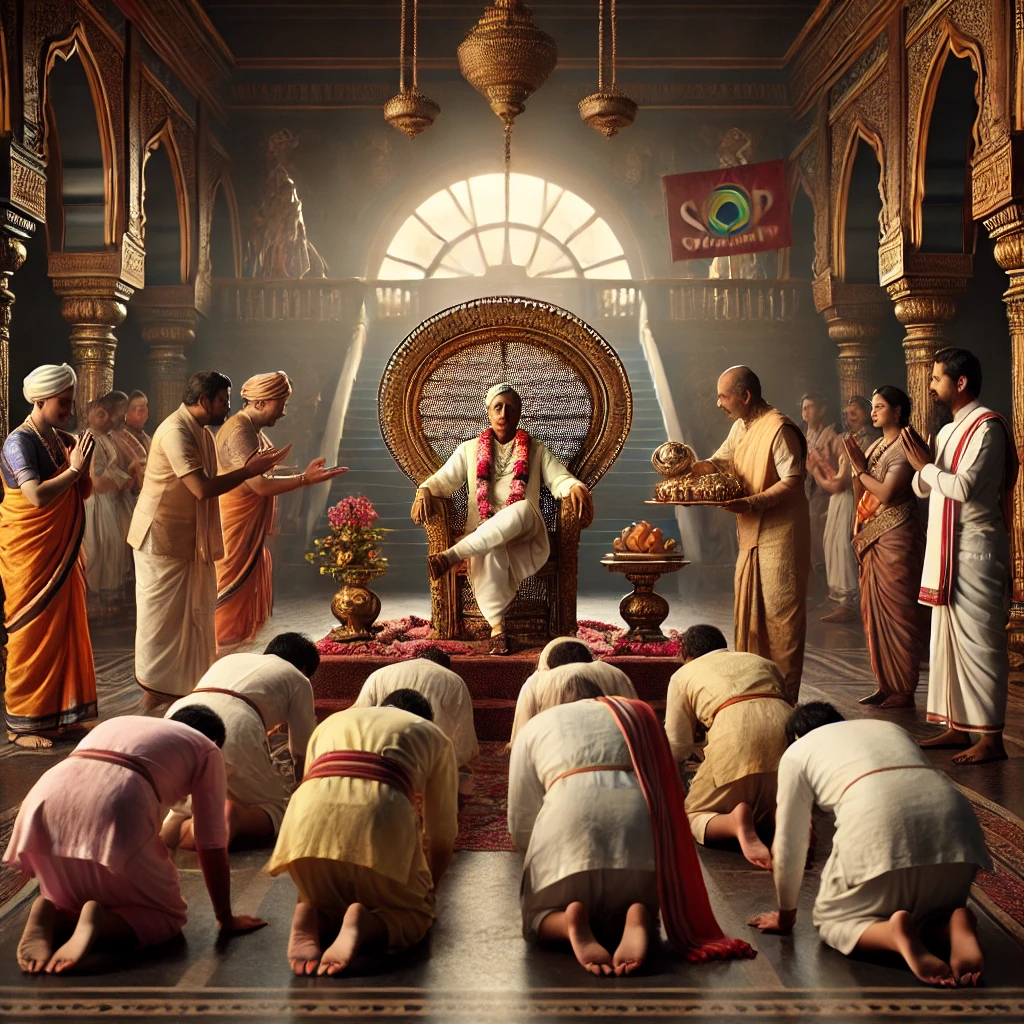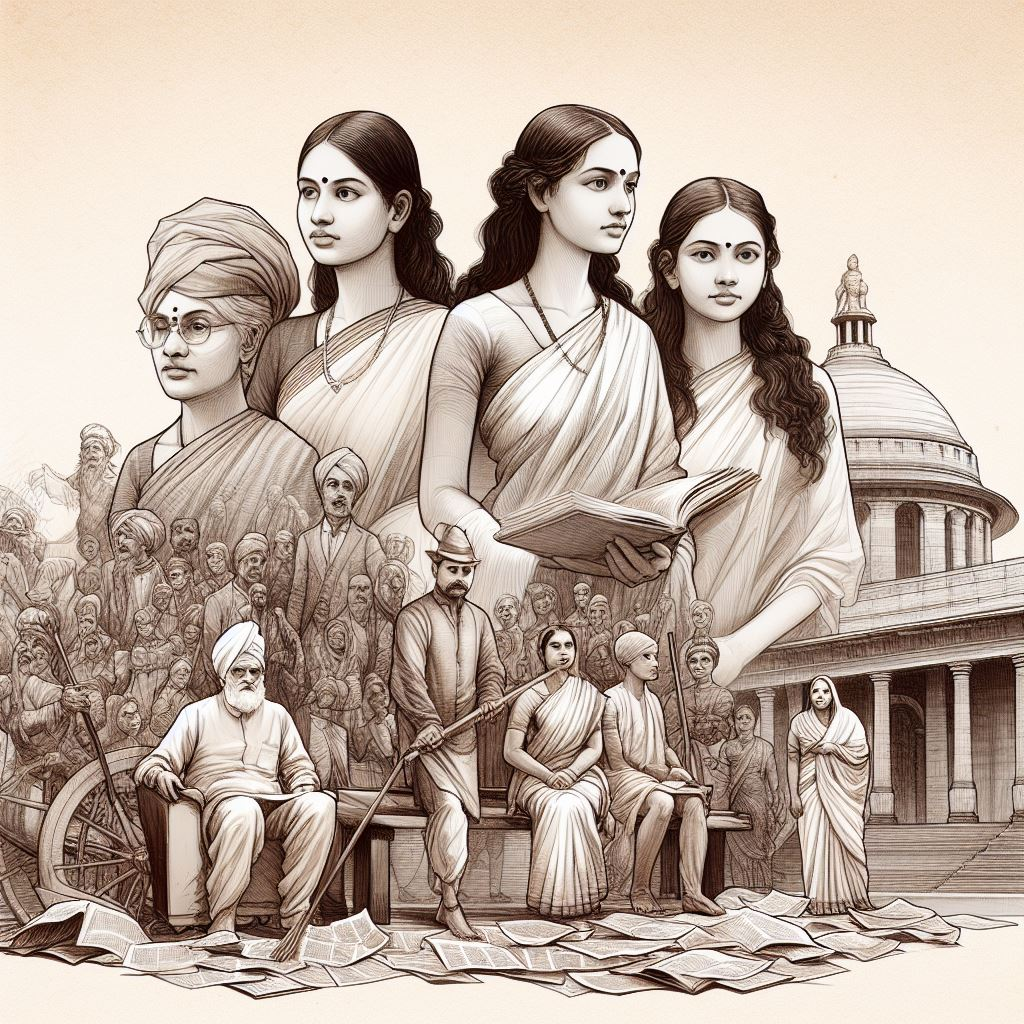Dr. Ashwani Kumar and Dr. Vikas Bhandari
“When politics prioritizes simping over empowerment, it normalizes a culture of mastery, creating space for alien dominant personalities to rule.”
In contemporary Indian politics, a troubling phenomenon has emerged: the rise of “simp culture.” The term “simp” originated and spread through pop culture media to refer to individuals, more often than not, men who throw themselves at someone they like, disturbingly, to the degree of sacrificing their self-worth to benefit the object of their affection. In its political context, therefore, simp culture refers to fanaticism where followers of a particular political leader or party defend the actions and decisions of their leaders without questioning the right or wrong or the appropriateness or otherwise of such acts. Instead, we have a culture that dis-empowers citizens, makes them rely on the state and gestures toward the dangerous diminishment of democracy. Instead of engaging in healthy debate or holding their leaders accountable, political supporters reduce themselves to mere followers, elevating their leaders to infallible, almost idolized status.

Using simp culture as a lens to analyse recent developments in Indian politics, this article explores how the affectionate simp phase is harmless but detrimental to sincere political participation, social enlightenment, and a stable nation. This mentality can stifle attempts at creating an empowered citizenry and if taken to an extreme, it can fully ensure that critical thinking is replaced with hero worship and that society starts to disintegrate rather than progress.
Simp Culture in Politics: More Than Just Blind Loyalty
Simp in reference to politics in India is the blind support for politicians irrespective of the harm it causes to the political person and or country. This is not just a form of party Identification but a complete rapture of political personalities. Bashers of specific parties act in the same way, ranting for their leaders – irrespective of their policies, controversies, or failures. From the use of social media marketing and endorsement, from public demonstrations of support to personal vilification of dissenters, simp culture expects political obedience, refraining from any dissenting voice, contrary to the fundamental human right of free speech.
The destructive nature of simp culture lies in its power to silence critical voices and discourage the active participation of citizens in democratic processes. When people start to view their political leaders not as accountable representatives but as infallible figures, they abandon their role as active citizens and reduce themselves to mere followers. A striking example of this can be seen in the behavior of MLAs of different political parties during recent assembly session in J&K. Instead of addressing the pressing, local issues affecting their constituencies—such as unemployment, infrastructure, or healthcare—many of these leaders chose to reject the voices of majority members within the house. Rather than engaging in constructive debates, they mimicked the actions of their superiors of their party, often blindly parroting the rhetoric and policies of the central leadership. This not only undermines the democratic process but also highlights how simp culture in politics leads to a lack of accountability and local representation. By prioritizing loyalty to central leadership over the needs and concerns of their constituents, these leaders reduced themselves to mere mouthpieces, eroding the democratic essence of their roles.
Why Empowered Citizens Are Essential for Healthy States
For any democracy, including India, empowered citizens are the backbone of a healthy state. True empowerment means being informed, engaged, and critical in the face of political decisions. A healthy democracy does not thrive on the loyalty of passive followers; it thrives when citizens actively participate in governance, hold leaders accountable, and debate policies with a clear understanding of the issues at hand.
In India, the culture of simping poses a serious challenge to democratic engagement. When citizens blindly follow a leader or party, they are less likely to question their actions or demand accountability. Instead of making decisions based on reason, evidence, and the public good, they defend leaders for the sake of loyalty—often without regard for the real-world consequences of those decisions. In a nation as large and diverse as India, this kind of political apathy is a dangerous precedent.
The Dangers of an Expanding Simp Culture
As simp culture gains traction in Indian politics, it has the potential to fundamentally alter the way citizens interact with the political system. The rise in political loyalty driven by emotional attachment rather than rational thought could become deeply destructive for the nation in several ways:
Erosion of Critical Thinking and Civic Responsibility: One of the most critical aspects of a functional democracy is an informed and critically thinking electorate. If voters become passive supporters, valuing loyalty over independent thought, they stop questioning policies, holding leaders accountable, and demanding better governance. When critical thinking is replaced by blind loyalty, citizens lose their ability to discern between policies that serve the public interest and those that serve the personal or political interests of leaders. Over time, this erodes civic responsibility and weakens the democratic fabric.
Consolidation of Power in the Hands of a Few: Simp culture is ideal for populist leaders who rely on the emotional attachment of their followers. By cultivating a “cult of personality,” such leaders can manipulate public opinion, distract from their own failings, and consolidate power without facing meaningful opposition. As citizens become more inclined to defend their leaders at all costs, the checks and balances that are supposed to exist within democratic systems—like an independent judiciary, free press, and opposition parties—become irrelevant. The leader becomes the system, and dissent becomes seen as a betrayal, weakening the democratic mechanisms designed to prevent authoritarianism.
Polarization and Division in Society: A nation where loyalty to political leaders is prioritized over thoughtful discourse enhanced polarization. Instead of promoting unity, simp culture thrives on dividing citizens into opposing camps. Supporters of one leader are cast as “true patriots,” while those who disagree are demonized as traitors. This creates an environment of constant conflict, where debate is replaced by hostility. When political conversations devolve into tribalistic arguments, society loses its ability to solve problems through dialogue and compromise.
National Stagnation and Decline: For State like India to grow as a nation, it must engage in critical reflection and evolve its political, economic, and social systems. Simp culture stifles this evolution. A populace that does not question its leaders is less likely to advocate for necessary reforms. When citizens stop demanding progress or change, when they are content with the status quo as long as it comes from their preferred leader, the nation risks stagnation. Instead of evolving to meet the needs of its people, the country could become trapped in cycles of ineffective governance, corruption, and short-term populist measures.
Apathy Toward Social and Economic Issues: Simp culture distracts from the real, pressing issues that a nation faces. When citizens are more concerned with defending their leader than addressing issues like poverty, unemployment, healthcare, or education, critical problems go unaddressed. The longer this mindset persists, the more ingrained it becomes in the national psyche, leading to a situation where citizens no longer see themselves as active participants in improving their own lives and society. Instead, they passively accept whatever policies are handed down by their leaders, even if those policies do not meet their needs.
Breaking Free from Simp Culture: The Path Toward Empowerment
The most pressing need for India’s future is a shift away from simp culture and toward a more empowered, critically engaged citizenry. To ensure the continued strength of India’s democracy, citizens must embrace their role as active participants in governance, holding their leaders accountable and demanding transparency and fairness. The first step in this process is education—specifically, the cultivation of critical thinking skills.
Critical education—teaching citizens to analyze, question, and evaluate political decisions based on evidence and logic rather than emotion or loyalty—is crucial. Citizens must be equipped to assess the actions of their leaders objectively, considering the long-term consequences of political decisions rather than being swayed by short-term promises or charismatic rhetoric.
Moreover, political leaders must encourage open dialogue, promote transparency, and embrace accountability. The health of a democracy depends on the ability of its leaders to listen to dissent, engage in constructive debate, and be willing to make tough decisions that benefit the people, rather than just securing their own power base.
A Nation Built on Empowered Citizens, Not Simps
The rise of simp culture in Indian politics represents a dangerous shift from active political engagement to passive loyalty. While such loyalty may benefit individual leaders in the short term, it is destructive in the long run. A healthy, thriving nation requires empowered citizens who can think critically, question authority, and hold their leaders accountable. If India continues to fall prey to the allure of simp culture, it risks undermining the very principles of democracy, stalling social progress, and weakening its national fabric.
For India to truly evolve as a modern democracy, citizens must free themselves from the grip of blind loyalty and embrace their role as active, informed participants in shaping the nation’s future. Only then can the country break free from stagnation and build a society that is dynamic, accountable, and just.
The views and opinions expressed by the authors in this article are their personal opinions . You can contact the author/s at [email protected] The details of the authors are:
- Dr. Ashwani Kumar is an Assistant Professor (Sociology) at UILS, Chandigarh University, Punjab (India).
- Dr. Vikas Bhandari is an Assistant Professor (Political Science) at UILS, Chandigarh University, Punjab (India).


